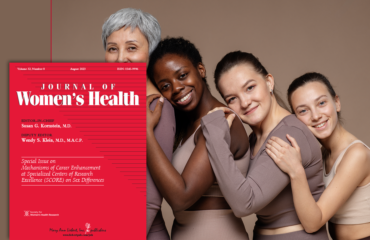Keep It Simple
Of course, there is a material difference between the way we talk to our female friends and the way we talk to our spouses; there has to be.
I don’t have to go shopping with Anne, but couples are mutually involved and invested in domestic matters, including parenting, providing shelter for themselves and their offspring, and deciding how to spend money. We are, after all, in partnership with one another, so sometimes you have to bridge the gap by mastering a common language.
In most cases, men and women do understand each other, but I have found that when I make an effort to speak in a language men can easily understand, my message gets across more successfully. In my experience, it’s well worth the effort, just as it is worth it to learn any language. My school-perfect French may never sound truly French to a Parisian, but the practice I put into it makes it much easier for me to have a joyful time vacationing there then if I was reading phonetically from my guidebook. The visit is much richer for the time it takes to brush up on my vocabulary.
Let me use another example of from the realm of female friendship. A female colleague of mine works at home. By now, I can basically tell by the tone of her “Hello” whether she’s deep in the middle of a work project or simply unloading the dishwasher. If she’s busy and there’s a question I absolutely must ask her, I get right to the point. If she sounds like she has a little time to chat, I handle the conversation differently. I’ll inquire about her family or our mutual acquaintances, mention a book or a performance that made that made me think of her, or shared data on a mutual patient. I talk to most men the way I talk to my friend when she is busy. And here’s what you can do.
- Make simple, declarative points, and order. If you want something done, outline it clearly and simply.
- Don’t guild a lily, illustrate your points with anecdotes, or even use unnecessary adjectives. A poet I met once said he imagined that every word he wrote cost $20. I have found this a useful editing tool in my conversations with men.
So many of the arguments we have with our male lovers and husbands stray from the topic at hand. Once you’re angry, it’s easy to get in touch with every single hurt feeling you’ve had in the relationship, and it takes a great deal of self-control to stop yourself from hurling old accusations, even when they have nothing to do whatsoever with what sparked the original argument.
This can wreck real havoc on our relationships. I realize that banishing the memory – and the impact – of a previous argument or betrayal is easier said than done, but I suggest that you make an attempt, when you are arguing, to restrict your discussion to the immediate incident at hand.
Marianne J. Legato, MD, Ph. D. (hon. c.), FACP is an internationally renowned academic, physician, author, lecturer, and pioneer in the field of gender-specific medicine. She is a Professor Emerita of Clinical Medicine at Columbia University College of Physicians & Surgeons and an Adjunct Professor of Medicine at Johns Hopkins Medical School. Dr. Legato is also the Director of the Foundation for Gender-Specific Medicine, which she founded in 2006 as a continuation of her work with The Partnership for Gender-Specific Medicine at Columbia University. She received an honorary PhD from the University of Panama in 2015 for her work on the differences between men and women.
At its core, gender-specific medicine is the science of how normal human biology differs between men and women and how the diagnosis and treatment of disease differs as a function of gender. Dr. Legato’s discoveries and those of her colleagues have led to a personalization of medicine that assists doctors worldwide in understanding the difference in normal function of men and women and in their sex-specific experiences of the same diseases.
She began her work in gender-specific medicine by authoring the first book on women and heart disease, The Female Heart: The Truth About Women and Coronary Artery Disease, which won the Blakeslee Award of the American Heart Association in 1992. Because of this research, the cardiovascular community began to include women in clinical trials affirming the fact that the risk factors, symptoms, and treatment of the same disease can be significantly different between the sexes. Convinced that the sex-specific differences in coronary artery disease were not unique, Dr. Legato began a wide-ranging survey of all medical specialties and in 2004, published the first textbook on gender-specific medicine, The Principles of Gender-Specific Medicine. The second edition appeared in 2010 and the third edition, dedicated to explaining how gender impacts biomedical investigation in the genomic era, won the PROSE Award in Clinical Medicine from the Association of American Publishers in 2018. A fourth edition is forthcoming.
She also founded the first scientific journals publishing new studies in the field, The Journal of Gender-Specific Medicine, and a newer version, Gender Medicine, both listed in the Index Medicus of the National Library of Medicine. She has founded a third peer-reviewed, open access journal, Gender and the Genome, which focuses on the impact of biological sex on technology and its effects on human life.
Dr. Legato is the author of multiple works, including: What Women Need to Know (Simon & Schuster, 1997), Eve’s Rib (Harmony Books, 2002), Why Men Never Remember and Women Never Forget (Rodale, 2005), Why Men Die First (Palgrave, 2008), The International Society for Gender Medicine: History and Highlights (Academic Press, 2017), and most recently, The Plasticity of Sex (Academic Press, 2020). Her books have been translated into 28 languages to date.
As an internationally respected authority on gender medicine, Dr. Legato has chaired symposia and made keynote addresses to world congresses in gender-specific medicine in Berlin, Israel, Italy, Japan, Panama, South Korea, Stockholm, and Vienna. In collaboration with the Menarini Foundation, she is co-chairing a symposium on epigenetics, Sex, Gender and Epigenetics: From Molecule to Bedside, to be held in Spring 2021 in Italy. She maintains one of the only gender-specific private practice in New York City, and she has earned recognition as one of the “Top Doctors in New York.”





